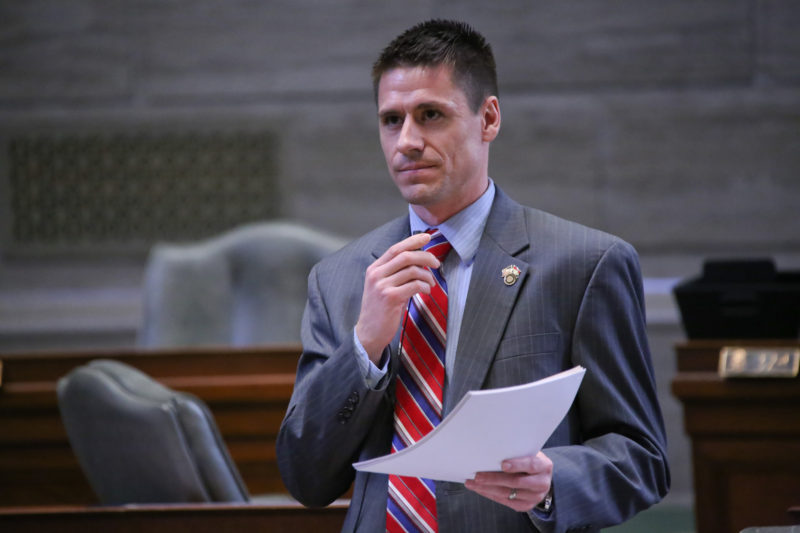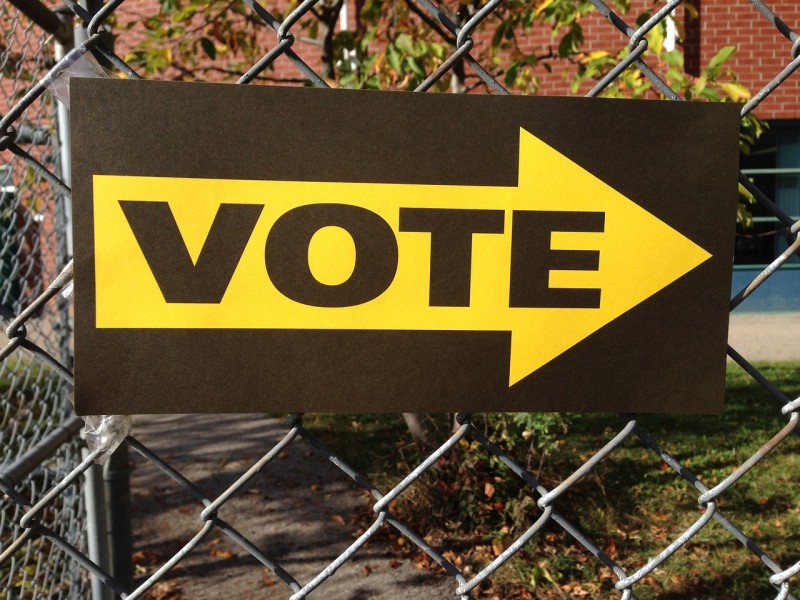JEFFERSON CITY, Mo. — Missouri is one of 15 states with an open primary system, but one Republican state senator hopes to change that this year.
Sen. Andrew Koenig has filed legislation that would require Missourians to select a political party when registering to vote. Then, voters would only be able to participate in their party’s primary elections.
“Political parties are private institutions, and if you’re not part of the institution, it just doesn’t make sense that you’d be able to pick the leadership or who’s running for that party,” Koenig told The Missouri Times. “Right now, we have a system in Missouri where people are literally going in and voting for candidates who they personally don’t like and who they think may be a weaker opponent for the other party, easier to beat, and I don’t think that’s a good system.”
As it stands now, SB 571 seeks to fully close Missouri’s primaries at all levels. Beginning in January 2021, voters would need to register with a political party to participate in primary elections. Missourians would be able to choose to be designated as “unaffiliated” but would not be able to vote in primary elections.

However, following a committee hearing last week, Koenig said he will most likely change his bill to partially close Missouri’s primary elections. With the change, unaffiliated voters would be able to vote in any primary election unless the party chose to close it to members only. (Voters would still only be able to participate in one primary election.)
“Other legislators are more open to a semi-closed than a completely closed [primary],” Koenig said.
Aside from Missouri, 14 other states have open primaries, according to the National Conference of State Legislatures (NCSL). They include: Alabama, Arkansas, Georgia, Hawaii, Michigan, Minnesota, Mississippi, Montana, North Dakota, South Carolina, Texas, Vermont, Virginia, and Wisconsin.
Illinois has partially open primaries; Kansas allows unaffiliated voters to participate in any party’s primary.
“If you look at the states that have it closed or semi-closed, it’s all over the place,” Koenig said. “It’s not like red states or blue states go a certain way. It’s scattered throughout all the United States.”
“I think the party should be able to pick the candidate they think is best without interference from people who are not part of that organization,” he continued. “You can point to several different instances where that influence has been negative, and the party cannot pick the candidate they feel is best.”
Koenig filed similar legislation last year but didn’t push it. This year, the bill has already been heard in a Senate committee. Koenig also said he’s kept the Secretary of State’s Office informed of his bill.
During a recent House Budget hearing, Secretary of State Jay Ashcroft floated some changes to primaries in Missouri as well. But he suggested doing away with the presidential preference primary altogether.
“[It’s] an election that really has no bearing on the presidential race,” Ashcroft said.
“We ignore the results, and then we have a caucus that actually chooses delegates to choose who goes to the national conventions,” Ashcroft said.
Koenig’s bill would allow voters to modify his or her party affiliation at any time, but changes made less than 23 weeks before a primary election would not go into effect until after the election has taken place. Those who are already registered to vote would be considered “unaffiliated” unless he or she participates in a primary election after Aug. 28 or files to change party affiliation.

Kaitlyn Schallhorn was the editor in chief of The Missouri Times from 2020-2022. She joined the newspaper in early 2019 after working as a reporter for Fox News in New York City.
Throughout her career, Kaitlyn has covered political campaigns across the U.S., including the 2016 presidential election, and humanitarian aid efforts in Africa and the Middle East.
She is a native of Missouri who studied journalism at Winthrop University in South Carolina. She is also an alumna of the National Journalism Center in Washington, D.C.
Contact Kaitlyn at kaitlyn@themissouritimes.com.













